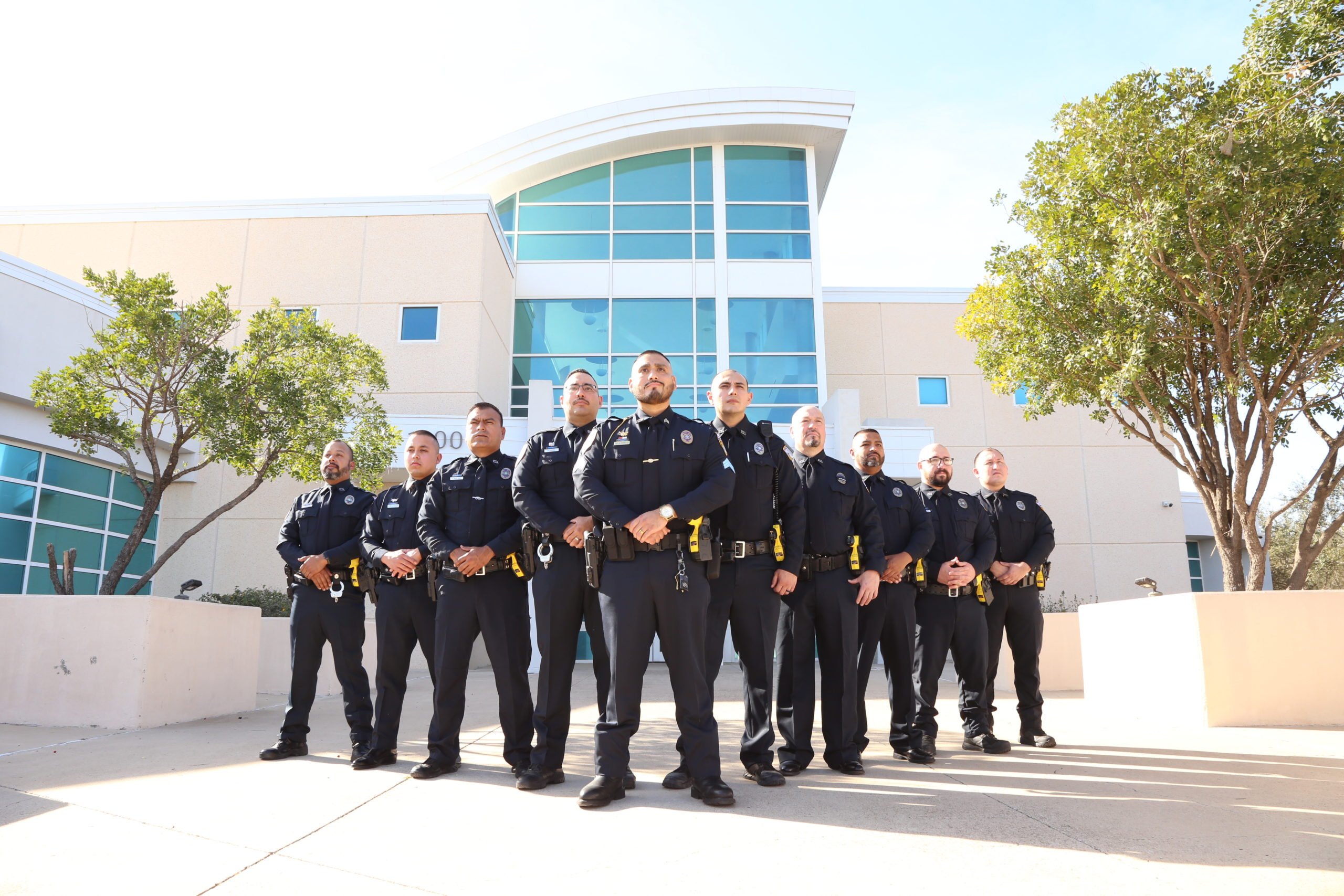
field training
The City of Pharr Police departments Field Training Program is intended to ease a police officer’s transition from the academic setting to the performance of general law enforcement patrol duties of the department. Although an officer graduating from the police academy has received a thorough introduction to basic law enforcement subjects, that officer cannot be expected to immediately function as an experienced officer. Newly assigned officers must receive additional training in the field, where they can learn from officers who have already gained a great deal of practical patrol experience. The Field Training Program introduces a newly assigned officer to the personnel, procedures, policies, and purposes of the department as well as providing the initial formal and informal training specific to the day-to-day duties of its officers.
In order to make the new officers’ field training as effective as possible, they are assigned to a Field Training Officer (FTO). The FTO is an experienced officer especially selected and trained to conduct this type of training. It is the responsibility of the FTO to thoroughly review the field training guide materials with the newly assigned officer and to demonstrate proper patrol procedures. Probationary officers will be required to perform various law enforcement duties under the guidance and supervision of their assigned FTO and Field Training Coordinator/Manager (FTC/M). The student’s performance will be evaluated daily by the FTO and monitored by the FTC/M through Weekly Manager Reports (WMR). This one-on-one style of training, and the fact that the instructor/trainers must guide the training in real law enforcement situations, sets it apart from any prior academic endeavor.
Field training has a significant impact on the individual student in terms of imprinting attitudes, style, values, and ethics in carrying out the duties of police work that will remain throughout a career. Consequentially, it is probably the most effective influence on the future direction of a department. The law enforcement department head and his or her field training managers must, therefore, be certain that the field training program which introduces officers to the department not only develops the necessary technical skills but also reflects the policing philosophy of the department and the community that it serves.
Listed below is an outline of what a newly hired Officer would experience in the Field Training Program.
Description of Phase Assignments
The Field Training Program of the Pharr Police Department consists of 0 to 800 hours of intensive training with a field training officer. The program is divided into several phases to allow the trainee to learn the duties of a police officer one stage at a time. The phases include remedial training to give the officer the opportunity to alleviate any serious problems he/she may be encountering. The training coordinator will administer an orientation to the PPO on the training program and what is expected of him/her. The program is then divided into the following phases:
Phase I: Orientation – Day 01-10; assigned to Primary FTO
Phase II: Demonstration – Day 11-30; assigned to Second FTO
Phase III: Partnership – Day 31-50; assigned to Third FTO
Phase IV: Primary – Day 51-70; assigned to Fourth FTO (assigned to solo patrol)
Phase V: Ghost – Day 71-80; assigned to Evaluator/FTO
Remedial training can only be administered on phase II AND III
1 Training Day = 8 Hours (If PPO works 6 hours or more, it is considered a training day)
Employee Orientation: Assigned to Training Coordinator for one week. PPO will be familiarized with FTO Program and what it is expected of him/her.
Pre Certified Officers with Experience
Probationary Police Officers who have three years of patrol experience at another department may qualify for an abbreviated training process. The three years experience must be documented, and approved by the Field Training Committee, in order to qualify.
At a minimum, the PPO will be required to be in a field training status for 32 working days. The same guidelines and procedures will apply as in the case of inexperienced PPO’S for solo status, remedial training, termination, etc.
There will be three phases to the Pre-certified Program with an experienced PPO.
Phase I: Structured in the following manner: The PPO will spend this time in an on the job learning status. While learning procedures of the department, the PPO will be carrying out 33% of the workload. This time period will consist of eight working days.
Phase II: Structured in the following manner: The PPO will spend this time carrying 66% to 90% of the workload. The PPO will require minimal assistance from the FTO. This time period will consist of sixteen days. At the end of this phase the FTO, FTO Sgt. and FTO commander will recommend solo patrol status or continuation of training. If solo patrol status is not recommended at this time, the PPO will have to complete sixteen more working days* before being considered for -solo status again.
Phase III: Structured in the following manner: The PPO will be placed in solo status, and will be handling 100% of the workload. This time period will consist of eight days. The same rules apply as in the case of inexperienced officers. If the PPO is not recommended for solo status, then he/she must complete the full training program for inexperienced officers.
